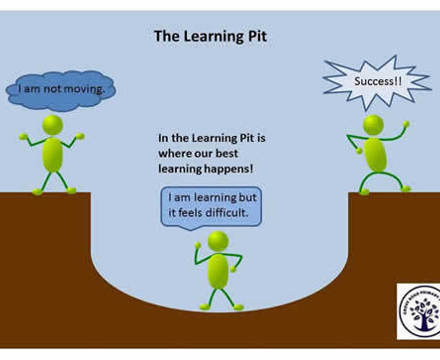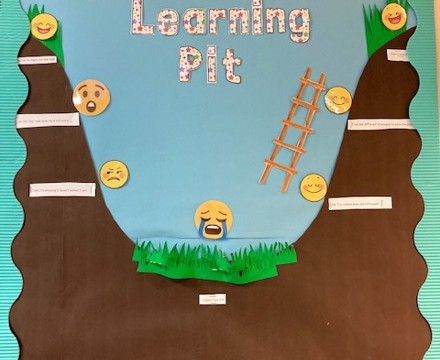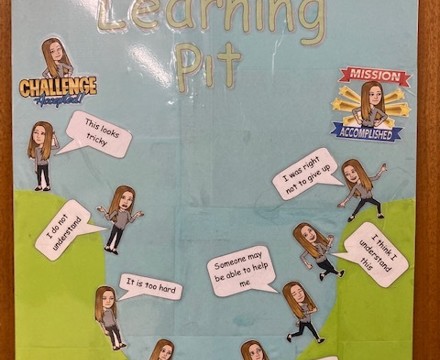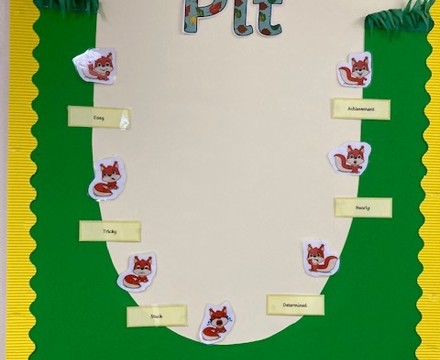Growth Mindset
What is Growth Mindset?
At Grove Road we believe that we can all become better thinkers and learners - with practice. A growth mindset is the conviction that we can improve our intelligence, ability and performance if we work hard, learn from our mistakes and willingly accept feedback. The opposite, a fixed mindset, is the belief that a person’s intelligence, ability and performance are set in stone and cannot be altered.
The concept of 'mindset' has been around for many years in education. Learning about mindsets helps children understand their abilities and become more successful learners. Children are taught that they can 'grow' their brain with practice and effort.
Growth Mindset in the classroom
In the classroom, our children are introduced to growth mindset by helping them to think about the brain as a muscle - and like other muscles in our body. The more we use it, the more it develops and grows. We can help our brain to do this. Staff model and explain the benefits of practising a new skill and that success is a product of hard work and effort.
The Children are rewarded for effort not outcome and are encouraged to challenge themselves. There is no ceiling for their learning and all children are encouraged to try, even when they feel stuck. Indeed, being 'stuck' is seen as an important part of the learning process and is called the 'learning pit'. The challenge is working to get out of the 'learning pit' by doing different activities, working with other children and getting feedback from the teacher. Making a mistake is seen as something positive and with useful feedback children are encouraged to learn from their errors and keep trying.
To promote a growth mindset:
- We are not afraid of making mistakes – we can learn from them
- We never give up – perseverance is the key if we are to succeed
- We learn from each other
- We challenge ourselves and take risks
- We remember that our brains are making new connections and growing all the time
This approach helps the children to:
- Develop high expectations
- Build confidence and self esteem
- Take responsibility for choosing their own learning tasks and level of challenge
- Be less fearful of mistakes and failure, accepting these as a natural part of learning
- Learn to use feedback in a positive way
Our aim is to equip children with a love of learning and challenge through developing a growth mindset equipping them with essential skills for the future.
Growth Mindset vs. Fixed Mindset
There are two types of mindsets we can cultivate. One that embraces problems as opportunities to learn, and one that avoids them, often out of fear to fail
The Learning Pit
The Learning Pit is helping the children to understand that learning can feel challenging, that it’s good to feel challenged by something new and that it’s by making mistakes and having a go that we move forward in our learning. The children are encouraged to articulate what it feels like to learn and work together, to go into “The Pit” and come out the other side. Here’s what some of them have been saying…
- “If you’re not in the pit you could challenge yourself to make it a bit trickier because then you will be learning something new.” – Tilly
- “If you are not in the pit, you are not learning.” – Ben
- “If you fall into the pit you can’t get out until you have learnt something new. I feel quite happy in the pit because I am learning.” – Bella
- “When you are not sure you can do it, the pit helps me learn new things.” – Milly
While in the Learning Pit the children are not only learning new knowledge and concepts, they are also learning how they learn and the different strategies and resources that will help them achieve their goal and climb to the top.
By recognising the feelings they experience when challenged and knowing that others feel the same, the children are developing the skills of determination and resilience. They are beginning to take ownership and control of their learning journey, developing the skills of intrinsic motivation and lifelong learning.




